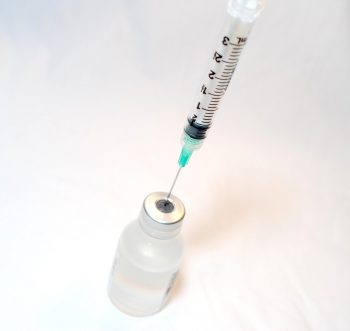Infectious Diseases in the Netherlands Posted by Karoly Molina on Jun 10, 2020 in Uncategorized
Have you ever heard of the PIENTER-onderzoek in the Netherlands? In this post, I will explore what this is and how is it has been expanded with the current COVID-19 situation.
PIENTER-onderzoek
First things first: what does pienter mean? According to the Van Dale dictionary, it means schrander of slim. PIENTER-onderzoek means a clever or insightful research or investigation. However, the Dutch PIENTER-onderzoek isn’t about intelligence but rather about the overall levels of antibodies against infectious diseases in the country.
The study has been done 3 times, the latest one in 2016-2017 and it is carried out by the RIVM (Rijksinstituut voor Volksgezondheid en Milieu) or the Department for Health and the Environment. These are the same people who have been overseeing the corona crisis in the Netherlands. The website of the RIVM sates the following as to why they carry out thee PIENTER-onderzoek:
Evaluatie van het Rijksvaccinatieprogramma, maar ook van ziekten waartegen (nog) niet of niet in programmatische vorm wordt gevaccineerd, is een taak die door het RIVM Rijksinstituut voor Volksgezondheid en Milieu wordt uitgevoerd. Doel hierbij is het RVP (Rijksvaccinatie programma) en het gebruik van vaccins voor de Nederlandse bevolking te optimaliseren. In relatie tot het RVP wordt vaak gesproken over immunosurveillance. Aan de hand van prevalentie van antistoffen (antibodies) wordt inzicht gekregen in de bescherming (immuunstatus) van de bevolking van ziekten waartegen (against which) wordt gevaccineerd.
In other words, the PIENTER–onderzoek is done to optimise the national vaccination program and to determine if the levels of antibodies are adequate for known infectious diseases. Once the research is concluded, the results are published and made public. The video below explains more about this study and, if you are interested in reading the results of the second PIENTER-onderzoek, check this link.
Among all the investigations the RIVM does, they are currently also doing a PIENTER corona studie to look into how the corona virus is spreading in the Netherlands and if people are creating antibodies. There have been so many people volunteering a little bit of their blood that there are no more spots for volunteers. As the RIVM gets results, they publish these on their website.
Rijksvaccinatieprogramma or RVP
Like I mentioned above, the PIENTER-onderzoek aims to optimise the Rijksvaccinatieprogramma or the national vaccination program. The RVP has a schema or plan as to what vaccines should be administered and at what age. You can find out more about the different vaccines in the schema in the Rijksvaccinatieprogramma website.
While vaccines are not verplicht or mandatory in the Netherlands, about 95% of children are vaccinated. The video below explains more about the vaccination program in the Netherlands.
https://youtu.be/-iwTYNzneAw
A recent outbreak of mazelen or measles in day cares pushed several day care organizations to reject children who were not up to date on their vaccines. There were strong arguments on both side, but in the end, the government allowed the daycares or créches to reject non-vaccinated children in an effort to protect those who were either too young for the vaccines or couldn’t be vaccinated due to medical problems. You can read more about this in this article from RTL.
Does your country have something similar to the PIENTER-onderzoek? If so, how are people selected?

Build vocabulary, practice pronunciation, and more with Transparent Language Online. Available anytime, anywhere, on any device.




